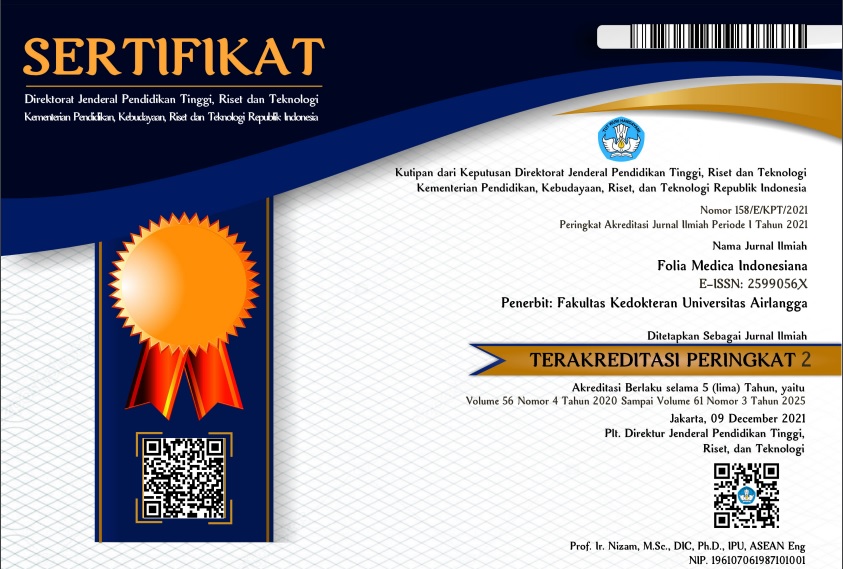Abstract
Lead is the free radicals and heavy metals of major pollutants in the environment. Lead is toxic and cumulative. Red dragon fruit (Hylocereus polyrhizus) peel extract is a natural antioxidant. Red dragon fruit peel extract can be used to stabilize free radicals by supplementing electron deficiencies and inhibiting chain reactions. This study aimed to analyze therapy effect of red dragon fruit peel extract to increase the number of Sertoli cells on BALB/c mice (Mus musculus) exposed to lead acetate. Fourty mice were divided into 5 groups (each group consisted of 8 mice). K- group was the control group without lead acetate and dragon fruit peel extract administration, K + group was given 100 mg/KgBW lead acetate orally on the 1st day until day 14th.. P1, P2, and P3 group were continued with red dragon extract orally on the 15th day until 39th day. P1 with dose 250 mg/KgBW, P2 with dose 500 mg/KgBW, and P3 with dose 1000 mg/KgBW. The result showed significant difference (P<0.05) in the number of Sertoli cells between K+ and P1, P2, P3 group. In conclusion, dose 500 mg/kgBW of red dragon fruit peel extract can be used as the most effective therapy to increase the number of Sertoli cells on mice exposed to acetate lead.
Keywords
Lead acetate, red dragon fruit peel extract, Sertoli cells
First Page
108
Last Page
113
DOI
10.20473/fmi.v56i2.21228
Publication Date
6-30-2020
Recommended Citation
Wulandari, Evy; I'tishom, Reny; and Sudjarwo, Sri Agus.
2020
Therapy Effect of Red Dragon Fruit (Hylocereus polyrhizus) Peel Extract to Increase the Number of Sertoli Cells On BALB/c Mice (Mus musculus) Exposed to Lead Acetate.
Folia Medica Indonesiana. 56,
2 (Nov. 2024 ), 108-113.
Available at: https://doi.org/10.20473/fmi.v56i2.21228






